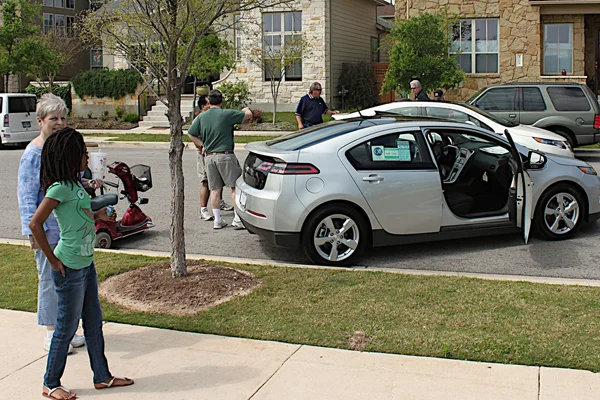There’s an line of thinking that’s been going on for a long time that the suburbs of a city are about as environmentally unfriendly as you can get, particularly given the unchecked sprawl and cookie-cutter tract housing so common across the US. Is it possible though, at least as far as the relationship between renewable energy and electric vehicles go, that the suburbs could be the ideal green locale?
That’s the line of thinking behind an interesting study just out from a multi-national team of researchers.
University of Lincoln Professor Hugh Byrd, out of London, and collaborators including Professor Basil Sharp from the New Zealand Energy Centre and experts from the University of Auckland, New Zealand say they challenge the conventional theory that compact urban form offers the best solution for a sustainable city. They instead see
the potential of suburbs for harnessing solar energy, with detached suburban houses capable of producing ten times the amount of energy created by skyscrapers and other commercial buildings.
Given that lower density housing exists in suburbia, they propose, there are more rooftops to collect solar on as well as a potential greater surplus of clean energy after individual housing uses have been accounted for. This excess could then be fed back into the grid, helping to balance out city center peak loads.

image via GM
And, with the increasing use of greener forms of personal automotive choices, “a dispersed city is more efficient when distributed generation of electricity by photovoltaic installations is the main energy source and electric vehicles are the principal mode of transport.”
There are some caveats to this, of course. These include that “controls of new suburban development may be needed that require the installation of photovoltaic roofing, along with smart meters and appropriate charging facilities for vehicles.” This will likely drive up the upfront costs of purchasing these types of homes, which may dissuade some from living in greener communities. Range anxiety could be another factor as well for those driving early generation electric vehicles.
“This research could have implications on the policies of both urban form and energy,” said Byrd in a statement. “Far from reacting by looking to re-build our cities, we need to embrace the dispersed suburban areas and smart new technologies that will enable us to power our cities in a cost-effective way, without relying on ever dwindling supplies of fossil fuels.”
Funded by the University of Auckland under the “Transforming Cities” initiative, the research was conducted in Auckland, by evaluating the energy usage and potential for power generation across typical cross-sections of the city.







